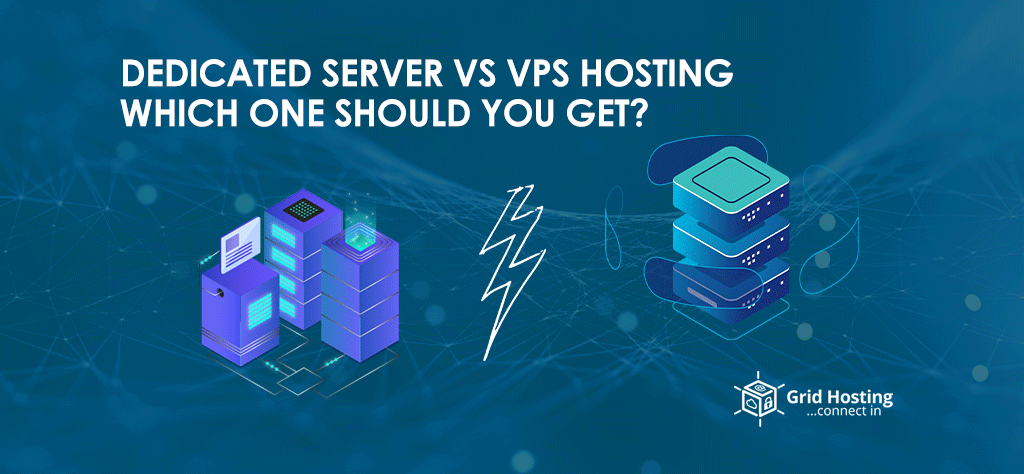The internet has developed into one of the most practical tools for generating revenue in the last two decades. The internet is a part of daily life, whether for news, sports equipment, the weather, electronics, online streaming, or simply finding the closest gym to your house.
Many companies are deciding to build their own websites as a result of the passage of time in order to either satisfy customer demand or merely continue to be relevant in their respective fields.
Whatever the cause, you might need to upgrade to a virtual private server (VPS) or a dedicated server to ensure that your company can continue expanding, pleasing consumers, and remaining online.
We’ll go over what these servers are what they have to offer, and how to choose the one that will work best for you in this article.
What is a Dedicated Server?
A dedicated server is a type of hosting service where a single physical server is leased to a single client or organization. The server’s resources, including its CPU, RAM, and storage, are only available to the client. This is in contrast to shared hosting, where multiple clients share the resources of a single server. Dedicated servers are typically used by businesses or organizations with high-traffic websites or specialized applications that require a high level of control and customization.
Benefits of the Dedicated Server
Using a dedicated server has a number of benefits, including:
Resources: With a dedicated server, you have exclusive use of all the server’s resources, including CPU, RAM, and storage. This means that you do not have to share resources with other customers, which can result in better performance and reliability for your website or application.
Control: A dedicated server allows you to have full control over the server’s operating system, software, and configurations. You can customize the server to meet the specific needs of your business or organization.
Security: A dedicated server provides a higher level of security than shared hosting. You have full control over security settings and can configure them to meet the specific needs of your business. Additionally, dedicated servers are less likely to be affected by security issues that may arise from other customers on a shared hosting platform.
Scalability: A dedicated server allows you to easily scale your resources up or down as your business or organization grows. You can add more CPU, RAM, or storage as needed, without having to move to a different hosting platform.
Reliability: Dedicated servers are typically more reliable than shared hosting because you are not sharing resources with other customers. This means that you are less likely to experience performance issues or downtime due to other customers on the server.
IP Address: Dedicated servers provide you with your own IP address, which can be beneficial for SEO and other online marketing efforts.
What is VPS Hosting?
VPS (Virtual Private Server) hosting is a type of hosting service that uses virtualization technology to partition a single physical server into multiple virtual servers. Each virtual server operates as a separate entity, with its own operating system, resources, and software. This allows multiple customers to share the resources of a single physical server while still having the level of control and customization that is typically associated with a dedicated server. VPS hosting is a good option for businesses or organizations that have outgrown shared hosting but do not yet need the resources of a dedicated server.
You May Also Like To Read: How Does VPS Hosting Impact Your SEO?
Benefits of the VPS Hosting
VPS (Virtual Private Server) hosting offers several benefits over shared hosting, including:
Greater control and customization: With VPS hosting, you have root access to the server, which allows you to install software, configure settings, and make other changes that are not possible with shared hosting.
Improved performance: VPS hosting provides dedicated resources (such as CPU and RAM) to each user, which can result in better performance and faster load times for your website.
More security: VPS hosting offers more security than shared hosting because each user has their own isolated environment. By doing this you may protect your website from security threats and hacking attempts.
Scalability: VPS hosting is more scalable than shared hosting, meaning that you can easily upgrade your resources (such as RAM and storage) as your website grows.
Isolation: VPS hosting allows you to be separated from other users on the same server so that you won’t be affected by any negative impact caused by other users on the same server.
Cost-effective: VPS hosting can be more cost-effective than dedicated hosting, as it offers many of the same benefits at a lower price point.
Difference between VPS hosting and dedicated server
VPS hosting and dedicated server are both types of hosting services, but they have some key differences:
Resource allocation: A VPS is a virtualized environment that shares resources with other VPSs on the same physical server, while a dedicated server is a single, physical server that is dedicated to a single tenant. This means that a dedicated server has more resources such as CPU, memory, and storage, available for use.
Cost: Dedicated servers are generally more expensive than VPS hosting as you are renting an entire physical server rather than just a portion of it.
Customization: A dedicated server allows for more customization of the hardware and software, while a VPS may have some limitations on what can be customized.
Security: A dedicated server can provide an added layer of security as it is not shared with other tenants, while a VPS shares the same physical server with other virtual environments.
Scaling: Dedicated servers are more scalable than VPS, as it is easy to add more resources to a dedicated server as the traffic grows, while VPSs are limited by the resources available on the physical server.
Dedicated Server VS VPS Hosting Which one Should You Get
Dedicated servers and VPS (Virtual Private Server) hosting are both types of web hosting, but they differ in terms of the resources and level of control they provide.
Dedicated servers are entire physical servers that are rented out to a single client. These servers provide the highest level of control and resources, making them suitable for websites with high traffic or resource-intensive applications. They are also more expensive than other types of hosting.
VPS hosting, on the other hand, is a virtualized environment that is created on a physical server. Each VPS functions as a separate server and has its own resources, including CPU, RAM, and storage. VPS hosting provides a good balance of control and resources, making it suitable for websites with medium to high traffic. They are also more affordable than dedicated servers.
Summary
In summary, if you have a website with high traffic or resource-intensive applications, you should consider getting a dedicated server. If your website has medium to high traffic, A VPS might be a more suitable and cost-effective option.
For Special discounts and offers, visit our official Facebook Page.







